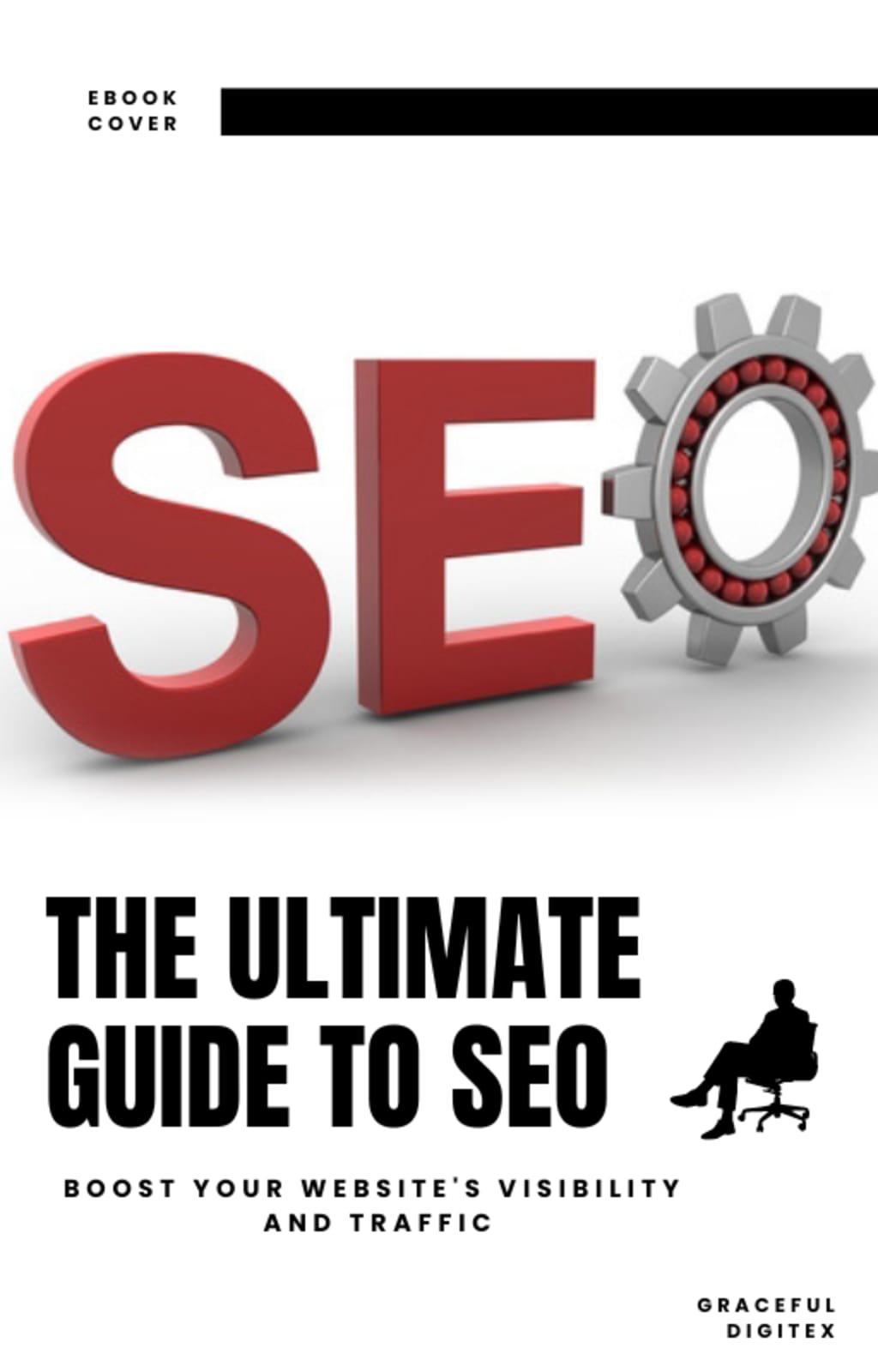The Ultimate Guide to SEO
Boost Your Website's Visibility and Traffic

Search Engine Optimization (SEO) is the practice of increasing the quantity and quality of website traffic through organic search engine results. By optimizing your website's content, structure, and relevance, you can improve your search engine ranking, attract more visitors, and boost your online visibility. This comprehensive guide will cover everything you need to know about SEO, from the basics to advanced strategies, so you can optimize your website and attract more traffic.
Table of Contents
- What is SEO?
- Why is SEO important?
- How do search engines work?
- Keyword research
- On-page optimization
- Off-page optimization
- Technical SEO
- Local SEO
- Mobile optimization
- Content marketing
- Social media optimization
- Analytics and tracking
- Advanced SEO strategies
- Common mistakes to avoid
- Conclusion
What is SEO?
SEO is the practice of optimizing your website's content, structure, and relevance to improve your search engine ranking and attract more visitors. It involves using various techniques and strategies to make your website more visible and appealing to search engines like Google, Bing, and Yahoo. SEO encompasses everything from keyword research and on-page optimization to content marketing and off-page optimization.
Why is SEO important?
SEO is important because it helps businesses and individuals improve their online visibility, attract more traffic, and generate more leads and sales. By optimizing your website for search engines, you can increase your chances of being found by potential customers and clients who are looking for products or services like yours. SEO is also cost-effective compared to other forms of digital marketing, making it a popular choice for businesses and individuals looking to increase their online presence.
How do search engines work?
Search engines like Google and Bing use complex algorithms to crawl and index websites and web pages. They use a variety of factors to determine a website's relevance and authority, including keywords, content quality, backlinks, and user engagement. When someone types a query into a search engine, the engine uses these factors to rank relevant websites and web pages based on their relevance and authority.
Keyword research
Keyword research is the process of finding the right keywords and phrases to target in your website's content. By targeting keywords that are relevant to your business and have a high search volume, you can improve your website's visibility and attract more traffic. Keyword research involves analyzing search trends, competition, and user intent to find the best keywords to target.
On-page optimization
On-page optimization refers to the optimization of individual web pages to improve their relevance and authority. It includes optimizing content, meta tags, headers, images, and internal links. On-page optimization helps search engines understand what a web page is about and improves its chances of ranking higher in search results.
Off-page optimization
Off-page optimization refers to the optimization of external factors that can influence a website's ranking, such as backlinks and social media signals. By building high-quality backlinks from reputable websites and engaging with your audience on social media, you can improve your website's authority and relevance, and attract more traffic.
Technical SEO
Technical SEO refers to the optimization of technical aspects of a website, such as page speed, mobile-friendliness, and crawlability. Technical SEO ensures that search engines can easily crawl and index a website's content, and that users can access and navigate the website quickly and easily.
Local SEO
Local SEO refers to the optimization of a website for local search queries, such as "restaurants near me" or "plumbers in New York City". By optimizing your website for local search, you can attract more local traffic and improve your chances of being found by potential customers and clients in your area.
Mobile optimization
Mobile optimization refers to the optimization of a website for mobile devices, such as smartphones and tablets. With more and more users accessing the internet through mobile devices, it's essential to ensure that your website is mobile-friendly and offers a seamless user experience across all devices. Mobile optimization includes optimizing page speed, responsive design, and mobile-friendly content.
Content marketing
Content marketing involves creating high-quality, relevant, and engaging content to attract and retain a target audience. By creating content that answers your audience's questions and provides value, you can establish your authority and credibility and attract more traffic to your website. Content marketing includes blog posts, videos, infographics, eBooks, and more.
Social media optimization
Social media optimization involves optimizing your social media profiles and content to attract more followers and engagement. By creating engaging content, building relationships with your audience, and promoting your website's content on social media, you can attract more traffic and improve your website's visibility.
Analytics and tracking
Analytics and tracking are essential for measuring the effectiveness of your SEO strategies and identifying areas for improvement. By using tools like Google Analytics and Search Console, you can track your website's traffic, rankings, and user behavior, and use this data to optimize your website and improve your SEO performance.
Advanced SEO strategies
Advanced SEO strategies include tactics like voice search optimization, artificial intelligence, and machine learning. By staying up-to-date with the latest trends and technologies, you can improve your website's visibility and attract more traffic. However, advanced SEO strategies require more time, resources, and expertise than basic SEO techniques.
Common mistakes to avoid
Common SEO mistakes include keyword stuffing, using low-quality backlinks, neglecting mobile optimization, and ignoring user intent. To avoid these mistakes, focus on creating high-quality, relevant content that provides value to your audience, and prioritize user experience across all devices and channels.
Conclusion
SEO is a critical component of any digital marketing strategy, helping businesses and individuals improve their online visibility and attract more traffic. By optimizing your website's content, structure, and relevance, you can improve your search engine ranking and attract more potential customers and clients. To succeed in SEO, focus on creating high-quality, relevant content, building high-quality backlinks, and providing a seamless user experience across all devices and channels.
FAQs
What is the difference between on-page and off-page optimization?
On-page optimization involves optimizing individual web pages to improve their relevance and authority, while off-page optimization involves optimizing external factors that can influence a website's ranking, such as backlinks and social media signals.
Why is mobile optimization important for SEO?
Mobile optimization is essential for SEO because more and more users are accessing the internet through mobile devices, and search engines prioritize mobile-friendly websites in search results.
What is content marketing, and how does it relate to SEO?
Content marketing involves creating high-quality, relevant, and engaging content to attract and retain a target audience. Content marketing is an essential component of SEO because it helps establish your authority and credibility and attracts more traffic to your website.
How can I measure the effectiveness of my SEO strategies?
You can measure the effectiveness of your SEO strategies by using tools like Google Analytics and Search Console to track your website's traffic, rankings, and user behavior.
What are some common SEO mistakes to avoid?
Common SEO mistakes include keyword stuffing, using low-quality backlinks, neglecting mobile optimization, and ignoring user intent. To avoid these mistakes, focus on creating high-quality, relevant content, building high-quality backlinks, and providing a seamless user experience across all devices and channels.






Comments (2)
Very good general guide. But individual seo may differ in details for different industries. If anyone is interested in this topic, I recommend this post: https://dev.fandom.com/wiki/User_blog:Proclus97/How_to_Do_SEO_for_Technology_Companies_Step-by-Step_Guide
I love this book. The writer is great.